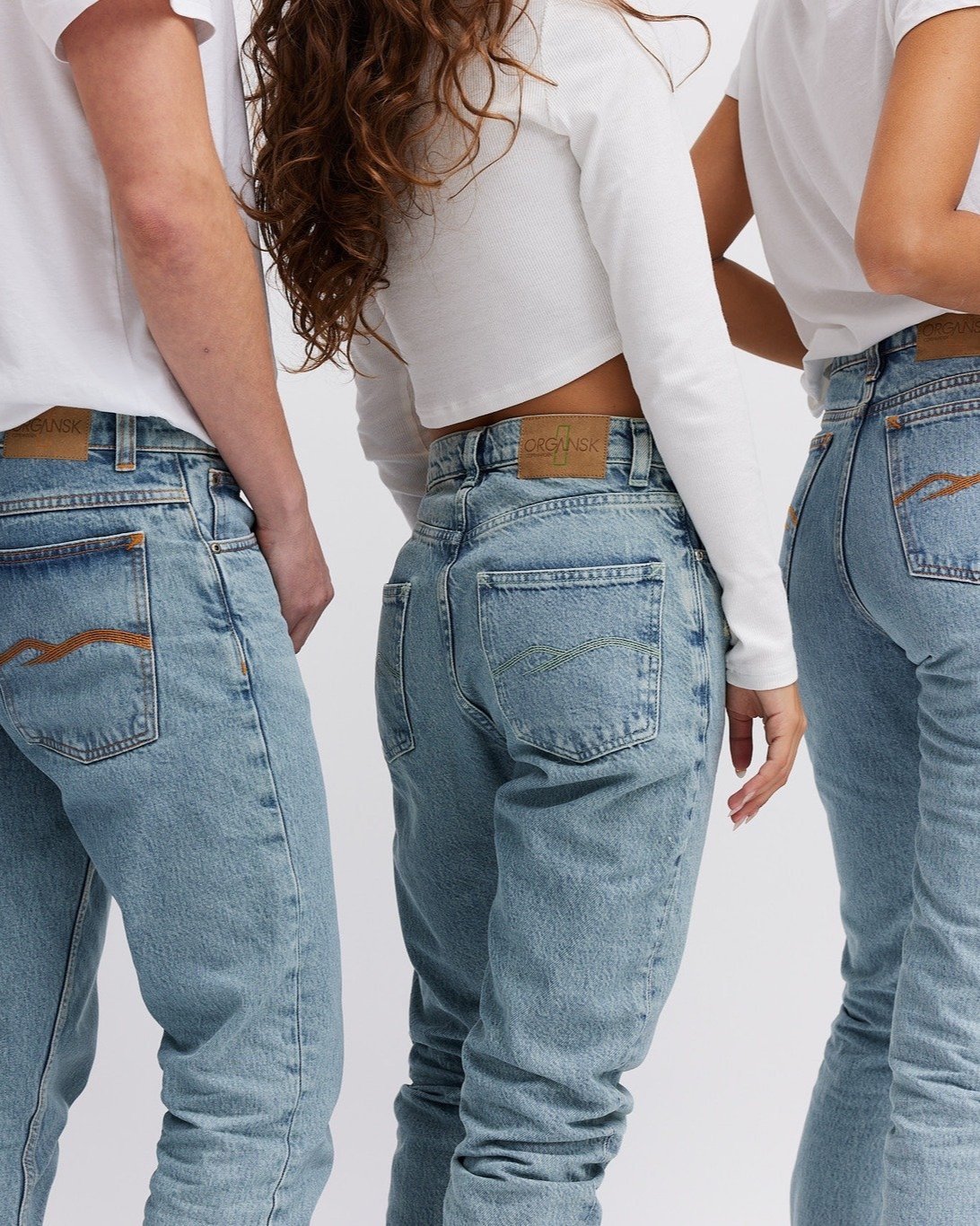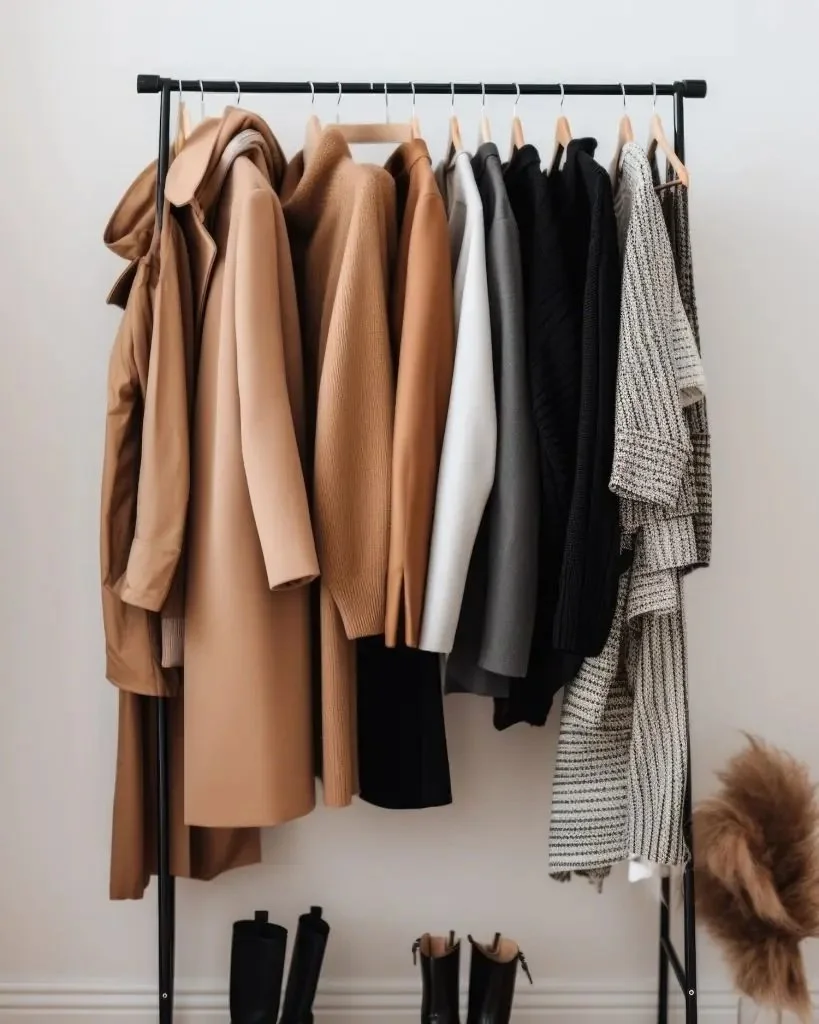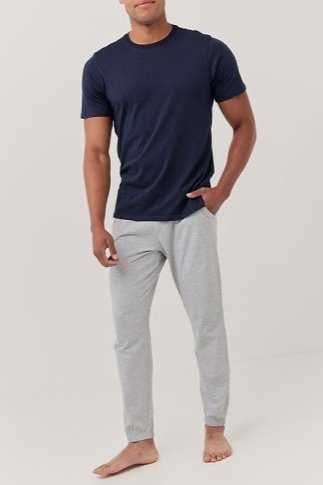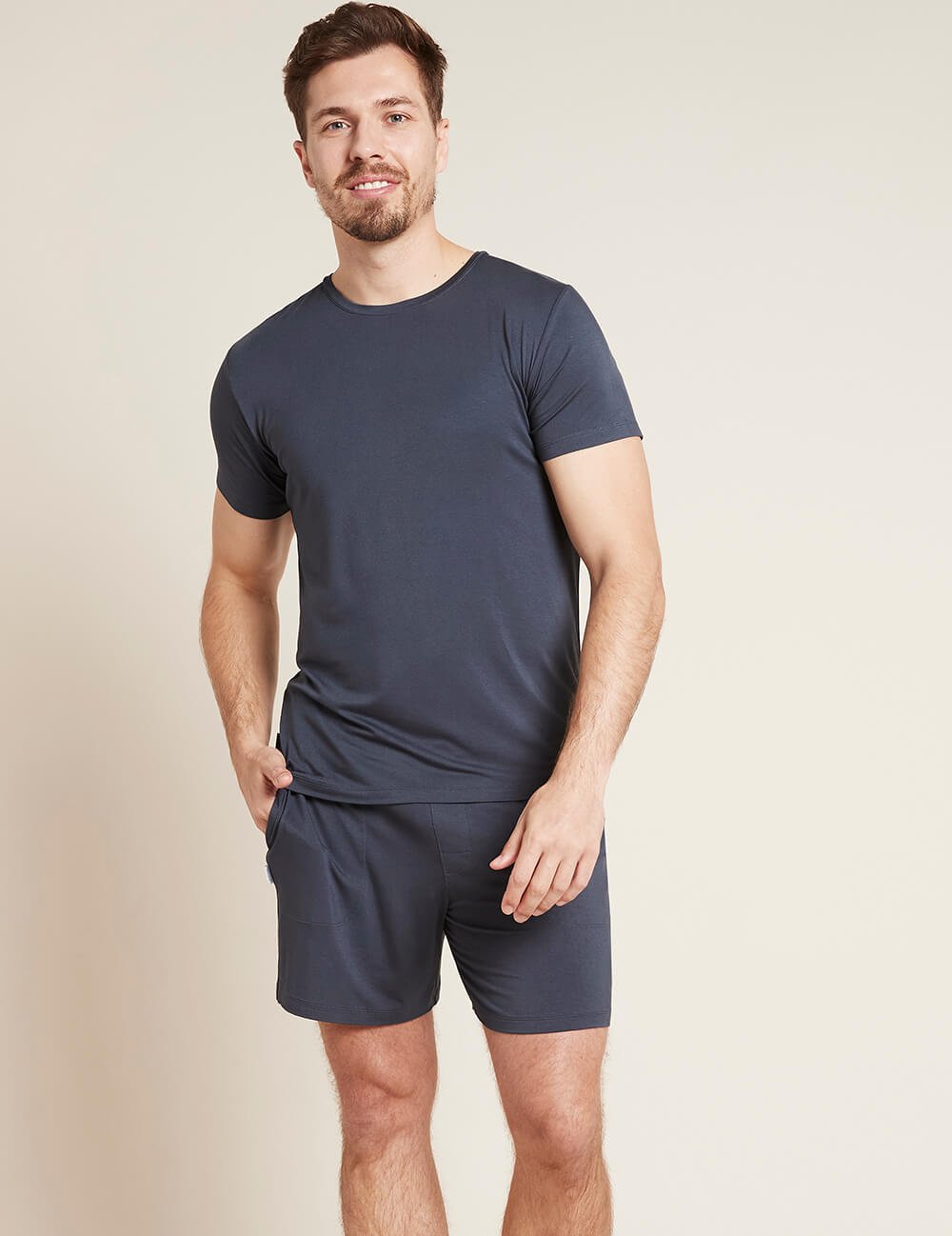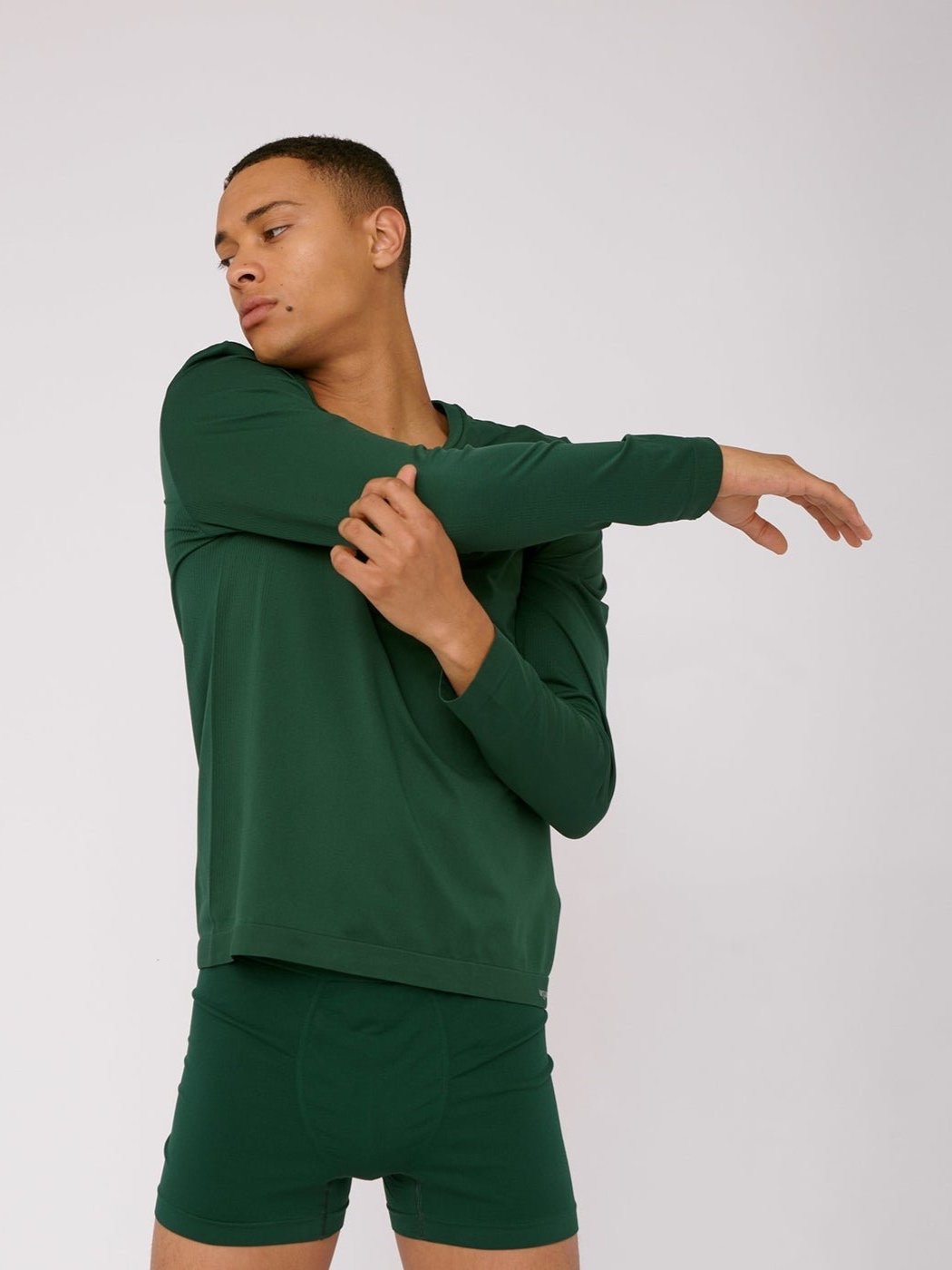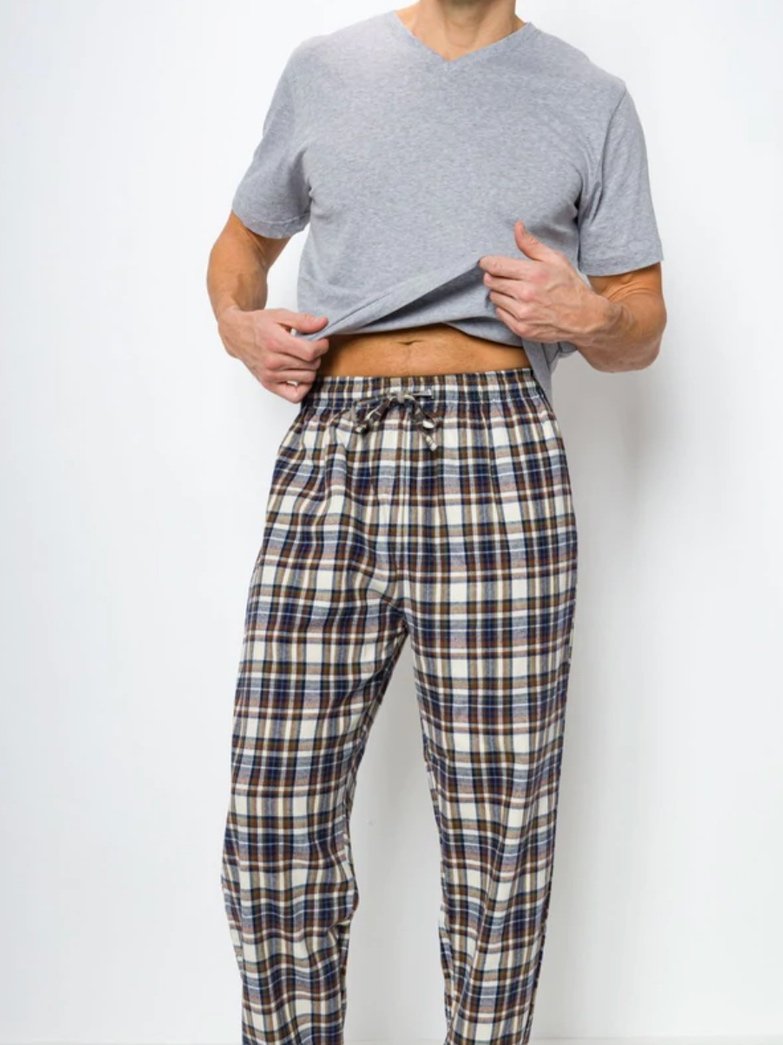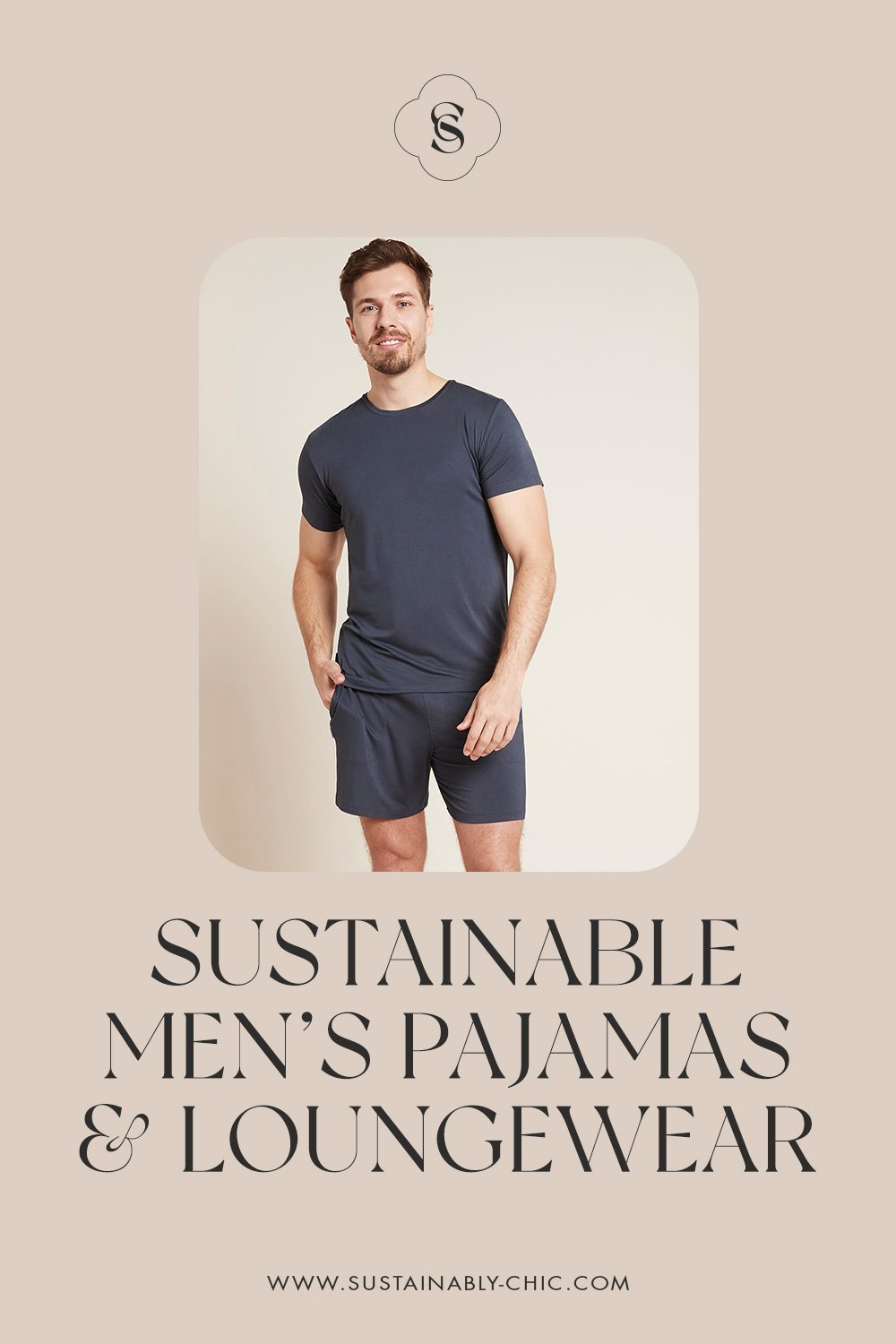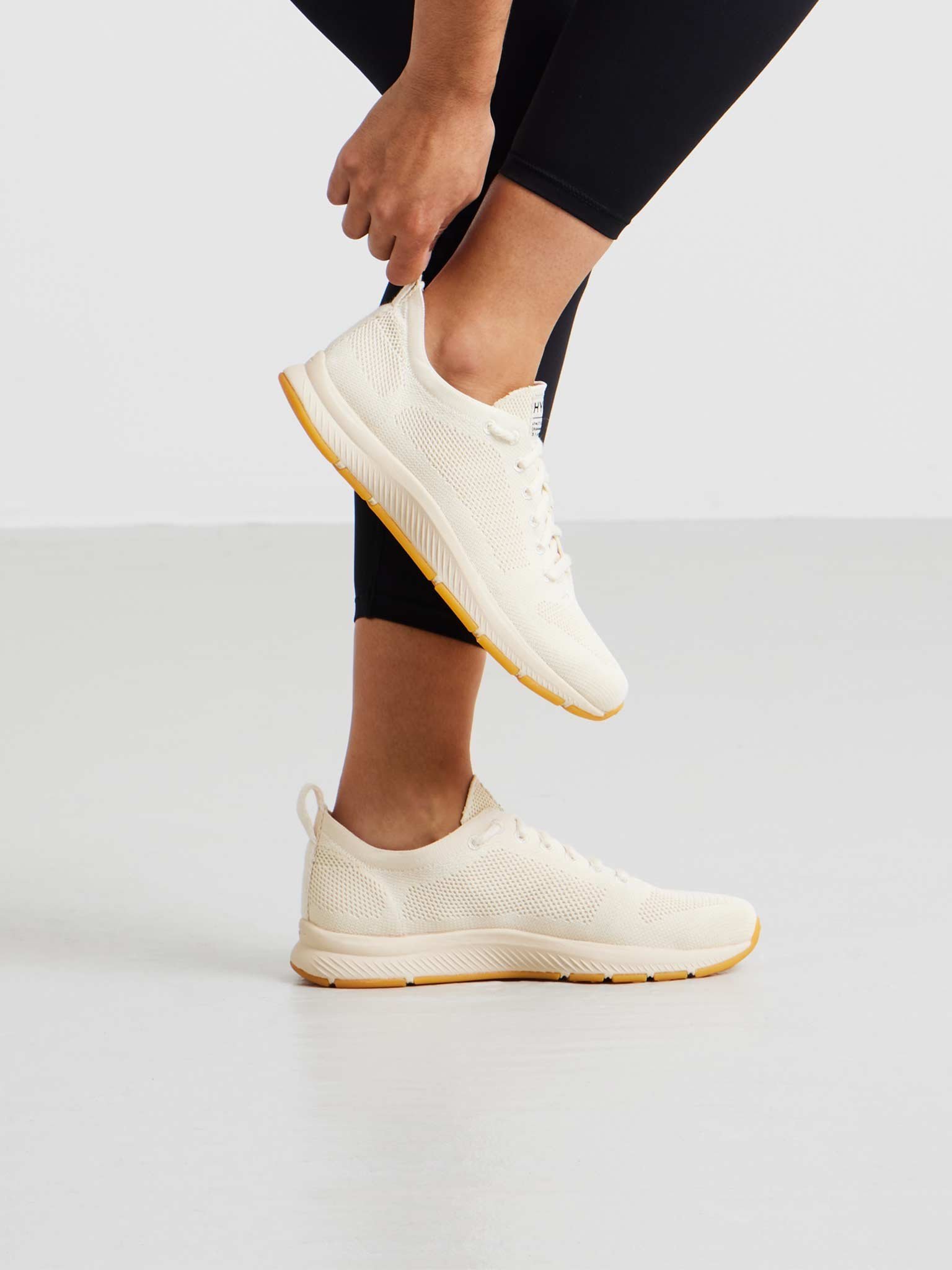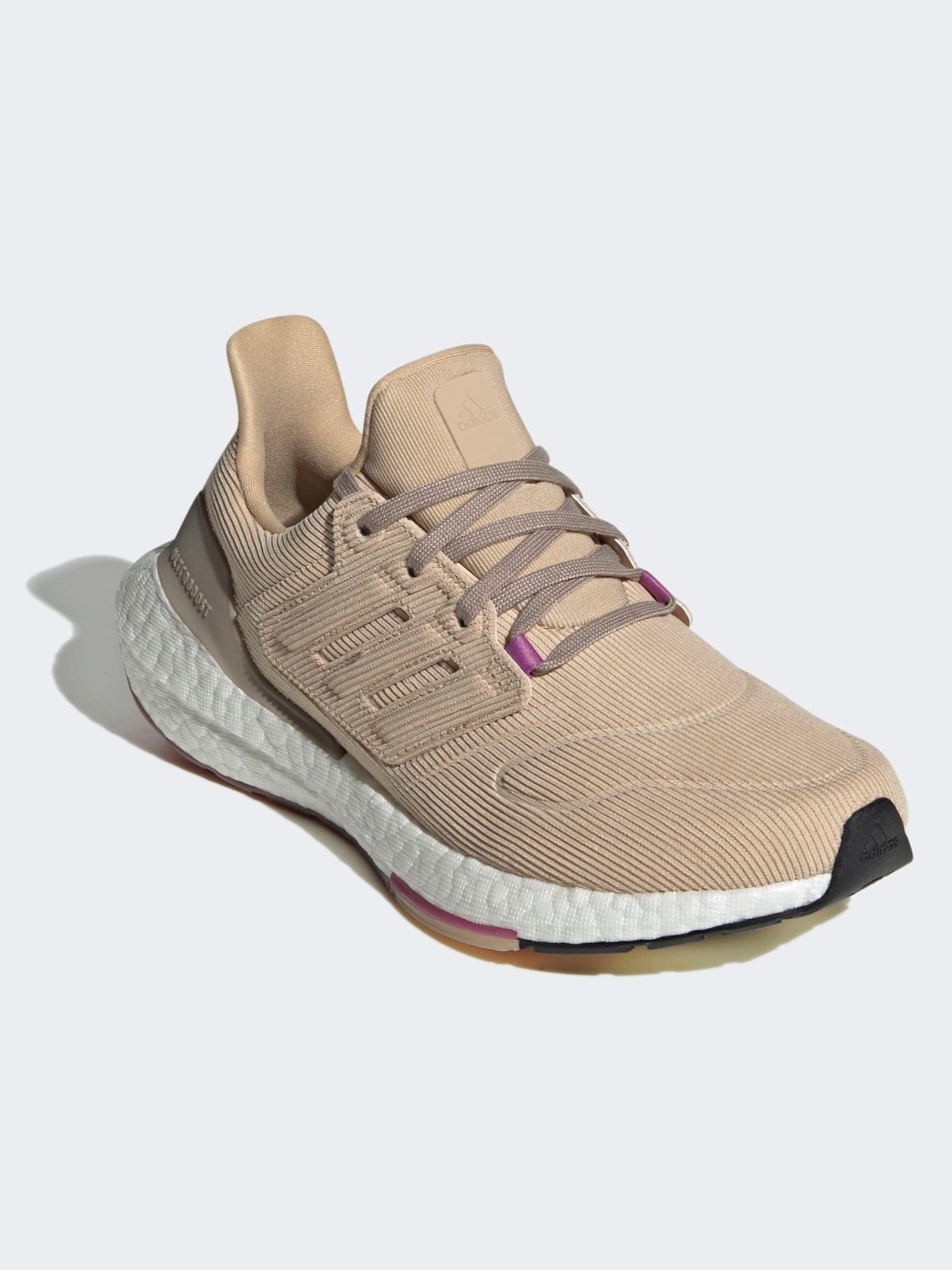Image: Kordal Studio
Disclosure: Some of the links below are affiliated; we may earn a small commission if you click through and make a purchase. We only add brands & products we truly believe in. Thanks for supporting the brands who are working to make the fashion industry a better place!
Sustainable Vegan Knitwear You Will Love
Getting rugged up and feeling cozy amongst the cold of winter and other cooler seasons is such a simple pleasure. While often we might not think of our knitwear choices beyond what it looks like, how it feels, and if it will keep us warm, there are environmental and ethical considerations worth making whenever we buy new clothes. For the sake of the planet, as well as human and non-human animals, sustainable vegan knits are great to seek out.
What can make knitwear unsustainable?
If we’re wanting knitwear that warms us up, while not contributing to the warming of our planet, there are a few things we can do. Before we even talk about material choice, it’s important that we think about how often we purchase knitwear. Even the most sustainably made knitwear can become unsustainable if we don't really want it, and it ends up going to waste.
Before buying any new piece of clothing it’s worth asking ourselves some questions, like, ‘do I really need this?’, ‘can I see myself wearing this hundreds of times, over years to come?’, ‘is this well made?’, ‘is this a timeless piece, or will it fall out of fashion quickly?’, and ‘do I absolutely love this?’.
If we ask ourselves these questions, we’re likely to slow down our clothing consumption, only buying things that we adore. This is a great win for the planet, as, across the globe, we consume 400% more clothing than we did just two decades ago, and globally, equal to one garbage truck full of clothing and textiles heads to landfill every single second.
Once we’ve made sure we’re being conscious about our knitwear purchases and how we make them, it’s a good idea to think about materials.
Why avoid synthetic knitwear?
As the fashion industry has sped up, we’ve seen the rise of synthetic fibers like nylon, acrylic and polyester. It’s worth avoiding knitwear made from these synthetic materials, including knitwear made with a blend of these materials (because organic cotton or wool knitwear isn’t going to biodegrade if blended with plastic) for a few reasons. First, while plastic fibers don’t biodegrade, returning to the earth, they do break down into tiny pieces. These microfibers can wreak havoc on already fragile ecosystems, including our oceans. There are more than 500 times more microplastic particles in the ocean than stars in our galaxy. These particles end up inside fish, marine mammals, and birds and make their way into almost all parts of the planet as they wash up on beaches and are even eaten by people. When it comes to knitwear, if you ever wash a synthetic sweater, it will shed these microplastic fibers, contributing to this problem.
What’s more, the production and sale of synthetic fibers like polyester and acrylic funds the fossil fuel industry – as these materials are made of said fossil fuels. Did you know that producing polyester, which made up 52% of all fibers produced in 2020, alongside other synthetics, means using an estimated 342 million barrels of oil each year? We need to be transitioning away from this industry entirely, not supporting it.
Is wool knitwear sustainable since it’s biodegradable?
Often, once people learn about the environmental devastation associated with synthetic knitwear, they will instead consider opting for knitwear made from sheep’s wool, or alpaca wool, cashmere, and so on. But is this the sustainable choice that it might first seem to be?
While it's true that (so long as animal hair isn't treated or dyed with substances that render it non-biodegradable) these materials do decompose, there's much more to material sustainability than this factor alone. The animal agricultural systems that produce these materials are hugely harmful to the environment, particularly when considering greenhouse gas emissions and land clearing.
The United Nations recognises the farming of animals as one of today's 'most serious environmental problems', which must be remedied with 'urgent action'. This isn't surprising, considering how much methane systems rearing animals, including sheep, alpacas, and goats, release. Higg's Material Sustainability Index shows that alpaca and sheep's wool are the most climate impactful materials to produce, only after silk. In fact, did you know that if you chose an Australian wool knit sweater over one made from Australian cotton, that choice would emit about 27 times more carbon equivalent emissions
Animal agriculture is also extremely land inefficient, with far more land needed to rear animals than to grow cotton, hemp, or other plant-based fibers (not to mention the benefits of recycled materials!). Given that forests, trees, and natural green landscapes can sequester so much carbon, this is also a climate issue. Using land for animal agriculture comes with a 'carbon opportunity cost', and if we transitioned to an entirely plant-based agricultural system by 2050, we could sequester 99-163% of our carbon emission budget to 1.5 C through rewilding of currently cleared land used for animal agriculture! If you're wondering how that works, consider that producing a bale of Australian wool requires 367 times more land than is needed for a bale of Australian cotton – and hemp is considered to be even more land efficient.
Are all plant-based knitwear materials sustainable?
Given both synthetic and animal-derived yarn used to produce knitwear come with serious environmental harms, it’s worth looking into plant-based materials. Unfortunately, not all plant-based materials are sustainable – let’s talk about conventional cotton.
Conventional cotton is often made in a very thirsty system, requiring significant amounts of freshwater to be used. Then, too, pesticides and fertilizer, which often run off farms and into waterways that are polluted and eutrophied – sometimes leading to dead zones – are often mismanaged and over-used in conventional cotton systems. These are all significant reasons to seek better alternatives.
Fortunately, not all cotton is grown equally, and it can be grown sustainably. Often, certified organic cotton is a great and sustainable choice. Some systems and countries have developed more sustainable production methods, and Australian cotton has come far in recent years. But, of course, recycled cotton is the most sustainable choice, making use of something which already exists, rather than requiring more resources to be made.
Other materials like hemp and lyocell produced in a closed-loop like Tencel, and blends of these, can be really sustainable options worth seeking out.
Is all knitwear ethical?
Of course, sustainability in fashion isn’t only about the direct impact that materials have on the planet. We cannot sustain injustice on this planet either, and so we need to think about the ethics of how our knitwear is produced.
Another reason to consider the materials used in knitwear more carefully is because of the individuals who are harmed in the making of some fibers. For example, if cotton isn’t certified to be made fairly, it is far too often grown and picked by children, people forced to work, and even people working in modern slavery conditions. Fortunately, ethical cotton and other plant-based materials exist.
Too, animal-derived materials don’t only have a harmful environmental impact, but their production harms animals. Not only are sheep often treated with extreme cruelty on farms and during shearing, but the wool industry is a slaughter industry, and sheep are killed when they are no longer of financial value because their wool quality has degraded as they age. This happens about halfway into their natural lifespan and is a practice across the alpaca wool and cashmere industries.
What’s more, even if an ethical and sustainable material has been used to produce knitwear, the knitwear itself won’t be ethical if it is knitted and sewn by a garment worker who is mistreated. Today, a shocking 98% of garment workers are paid a poverty wage, and exploitation and abuse are far too common in the industry full of people – largely women of colour – who make our clothes.
With all of this being said, buying knitwear might begin to feel impossible! But don’t worry, there are plenty of wonderful brands out there making knitwear that is good for the planet, people and animals.
1) Willow and Claude
This brand isn’t so much a brand, but a project from Collective Fashion Justice, a non-profit working to create a total ethics fashion system. Named after two rescued sheep, the project is made up of a collection of 100% Australian, sustainably grown and ethically made cotton knitwear – turtlenecks, scarves and crewneck sweaters – and an award-winning short film which explores the environmental and ethical issues of knitwear production, and a kinder alternative to these existing systems.
2) Afends
This Australian brand grows its own hemp and offers beanies, knit sweaters, and other garments made from the planet, as well as from recycled and organic cotton.
The brand also provides details on how much better for the environment their hemp products are compared to others made across the fashion industry.
use code SUSTAINABLYCHIC15 for 15% off full-priced items
3) Will’s Vegan Store
Another brand offering both feminine and masculine styles is UK-based Will’s. Ethically made across Europe, the knitwear selection is largely made of recycled materials, like recycled cotton, as well as recycled post-consumer polyester, made from recycled clothing. If opting for a recycled synthetic garment, it’s worth considering a Guppyfriend or other microfiber catching bag to use in your washing machine.
4) Kowtow
This gorgeous, New Zealand based brand offers a wide selection of knitwear like cardigans, crew neck sweaters, scarves, beanies and turtlenecks which are made ethically from certified organic and fair trade cotton. The cotton is dyed sustainably, and the knits feel weighty and luxurious.
Make sure to check the product details, as this brand also sells some wool.
5) Kordal Studio
This beautiful label offers sweaters which are hand-knitted ethically in Peru, and botanically dyed.
While not all of the brand’s selected fibers are sustainable, Kordal offers a divine selection of organic cotton pieces like fisherman style sweaters, cardigans, and even knitted pants.
6) ArmedAngels
Offering styles for both men and women, ArmedAngels is a fairly made German brand which uses some excellent materials in their knitwear collections.
Through the site, you can set a specific ‘vegan’ search, and find knitted dresses, vests, jackets, sweaters, cardigans and more, made from materials like organic cotton and Tencel.
About the Author
Emma Håkansson is the founder and director of Collective Fashion Justice which seeks to create a total ethics fashion system that prioritizes the life and wellbeing of non-human & human animals, as well as the planet, before profit & production. She has written countless articles on ethics, sustainability, and fashion, and has two books due out over the next two years.
MAKE SURE TO PIN THE PHOTO BELOW TO SAVE THIS POST FOR LATER!
WANT MORE SUSTAINABLE BRANDS? VISIT OUR BRAND DIRECTORY!
Our Brand Directory is home to hundreds of sustainable brands, from makeup to cleaning supplies, from underwear to shoes. We have broken everything down by category for easy shopping, along with discount codes unique to Sustainably Chic viewers.






















